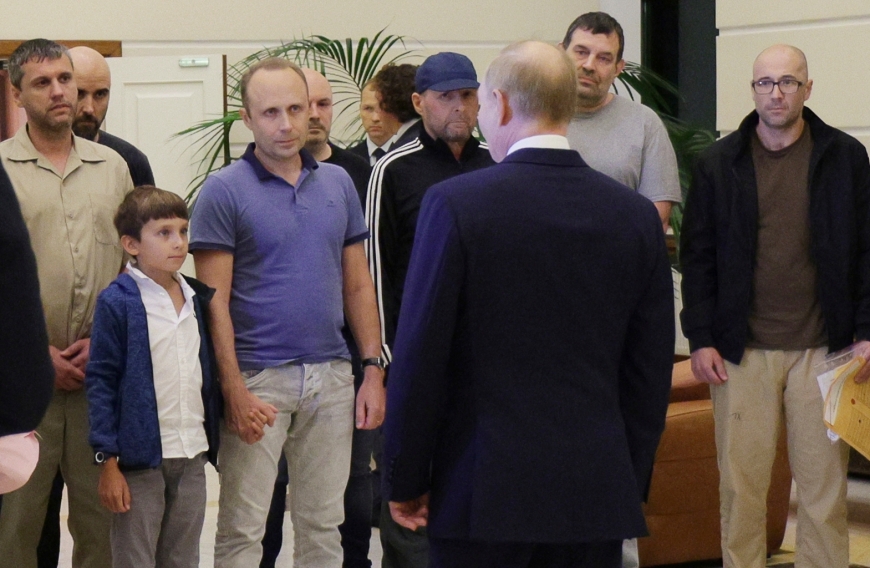Key Points About the Largest US-Russia Prisoner Swap in Post-Soviet History

The United States and Russia completed their largest prisoner swap in post-Soviet history on August 1, 2024. This swap involved the exchange of 24 individuals and required months of negotiation, as well as concessions from European countries. The swap is seen as a significant diplomatic achievement by President Joe Biden.
Who Was Freed
-
Americans Released by Russia:
- Evan Gershkovich: Wall Street Journal reporter.
- Paul Whelan: Corporate security executive from Michigan.
- Alsu Kurmasheva: Radio Free Europe/Radio Liberty journalist and dual U.S.-Russian citizen.
- Vladimir Kara-Murza: Kremlin critic and Pulitzer Prize-winning writer.
-
Russians Released by the U.S. and Allies:
- Vadim Krasikov: Convicted of killing a former Chechen rebel in Berlin.
- Two alleged "sleeper" agents: Jailed in Slovenia.
- Three men charged in the U.S.: Specific charges not detailed.
- Two men returned from Norway and Poland: Specific charges not detailed.
Political and Diplomatic Context
-
Impact on US-Russia Relations:
- The swap is unlikely to significantly improve overall US-Russia relations, especially given the ongoing conflict in Ukraine and the U.S. support for Kyiv.
- Prisoner exchanges have been rare compromises during heightened tensions but do not indicate broader diplomatic progress.
-
Challenges in the Swap:
- The U.S. released individuals convicted of serious crimes, while those released by Russia were largely seen as wrongfully detained or held on baseless charges.
- Russia was particularly adamant about the return of Vadim Krasikov.
Remaining Americans in Russia
-
Americans Still Detained in Russia:
- Travis Leake: Musician convicted on drug charges.
- Gordon Black: American soldier convicted of theft and making threats.
- Marc Fogel: Teacher sentenced on drug charges.
- Ksenia Khavana: Accused of collecting money for Ukraine’s military.
The Biden administration has pledged to continue efforts to secure their release.
Political Reactions
-
Biden Administration:
- Praised the deal as a vital example of international diplomacy and cooperation.
- Committed to continuing efforts to bring home Americans unjustly detained abroad.
-
Donald Trump:
- Criticized the deal, suggesting on Truth Social that the U.S. had released dangerous individuals and claiming inaccurately that the U.S. had given cash to Russia as part of the swap.
This historic prisoner swap highlights the complexities and challenges of international diplomacy during times of significant geopolitical tension. While it demonstrates the ability to reach agreements even amid conflict, it also underscores the ongoing issues in US-Russia relations and the plight of Americans still detained abroad.













































